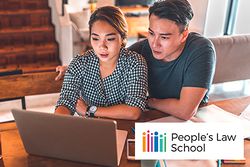Power of Attorney: Difference between revisions
Jump to navigation
Jump to search
| Line 8: | Line 8: | ||
== Contents == | == Contents == | ||
*''' | *'''Introduction''' | ||
** [[What is a Power of Attorney|What is a power of attorney?]]{{·}}[[Who can be an Attorney|Who can be an attorney?]] | ** [[What is a Power of Attorney|What is a power of attorney?]]{{·}}[[Who can be an Attorney|Who can be an attorney?]] | ||
Revision as of 21:52, 29 May 2014
|
|
This page from JP Boyd on Family Law—and other pages from this Wikibook that discuss BC family law litigation topics—are under editorial review to provide more thorough, current, and practical guidance. Since 2020, procedures, forms, and laws have changed significantly. While gross inaccuracies have been corrected, some details may still be outdated. These pages were not included in the 2024 print edition, and have been highlighted in orange where they appear in the navigation menu on this website. |

|
|
This is a Clicklaw Wikibook, a collaborative, plain language legal publication that is updated as a wiki and can be printed or downloaded. |
Power of Attorney from People's Law School is for people who want to know: what is a power of attorney? Who can be a power of attorney? What are the attorney’s powers and responsibilities? This edition reflects changes to the Wills, Estates and Succession Act (2014).
Contents[edit]
- Introduction
About this Wikibook[edit]
- About Power of Attorney
- Learn more about Clicklaw Wikibooks or visit other wikibooks from People's Law School
About People's Law School[edit]
The People's Law School is a non-profit charitable society whose purpose is to provide British Columbians with reliable information about their rights and responsibilities under the law.

- Suite 150 - 900 Howe Street
- Vancouver, BC V6Z 2M4
- Telephone: 604-331-5400
- Email: info@publiclegaled.bc.ca
- Website: www.publiclegaled.bc.ca
| ||||||||||||||||||||